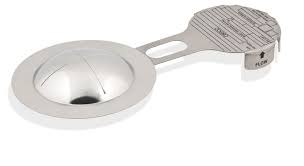The days go by quickly, and many are already preparing for the return of somewhat atypical summer vacation since the coronavirus pandemic is still raging in our country.
From the night of last Saturday, March 27, to Sunday, March 28, the Spanish clocks gave way to summertime daylight, and at 2:00 am, it was 3:00 am. Thus, all the inhabitants of the European Union slept that day one hour less than usual. From then on, dawn and dusk were later, making the days longer and brighter to give way to the summer season.
On the night of June 24, the Fiesta de San Juan was celebrated, a Christian holiday that commemorates the birth of Saint John the Baptist.
Tonight was the shortest night of the year and, therefore, the 23rd was the day with the most hours of sunshine in our country. From that moment, little by little, the days have been shortening. In October, and more specifically on the night of Saturday the 30th to Sunday the 31st, the second time change of the year will take place to give rise to the autumn/spring timetable. Thus, at 3:00 am, it will be 2:00 am, so it will be possible to sleep one more hour.
Why is the time changed?
The truth is that the summertime change began to be introduced in some European countries in the 1970s, with the first oil crisis. The objective was to take better advantage of the hours of natural light and thus avoid unnecessary energy consumption. Spain introduced this change in 1974.
However, it was not until 1980 when the European Economic Community made this official change in the clocks of its member countries by publishing orders on the subject and establishing when this change should occur in the different states.
What day is the time changed?
This spring (2021), we will change the time to the early hours of Sunday, March 28. The change will be as follows: at 2:00 in the morning, it will be 3:00. In the early hours of Saturday the 27th to Sunday the 28th, the clock advances one hour.
Does the time change affect my electricity bill?
It depends on the electricity rate you have contracted:
If in your home you have contracted a fixed rate with hourly discrimination (DH), such as our FIX MORNING rate, in which you pay a different price per kWh according to the time slot (P1 and P2), yes, you have to take into account the time change. As of Sunday, March 28 (2021), the time slot in which you pay a lower price ( P2 ) for your electricity consumption is between 11:00 pm and 1:00 pm.
Otherwise, if your home has a fixed rate without time bands, such as our FIX 24 PLUS rate, in which you always pay the same price per kWh (P1), don’t worry about the hours you have done up to now.
In the same way, if you have an indexed rate, such as our INDEX rate, since you continue to pay the price established by the electricity market at all times.
However, the time change has been the subject of debate. The European Parliament raised the possibility of eliminating the time changes as of 2021. It would be the countries themselves who would decide the relevant time changes according to their geographical convenience. Finally, this change has been postponed due to the coronavirus pandemic that has affected the globe since March 2020.





